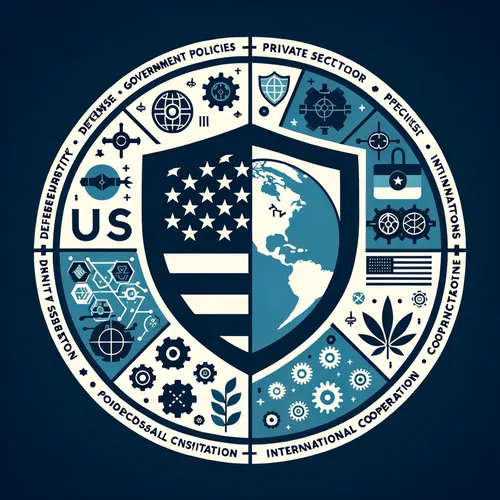CyberPulse: Texas Strikes Back, White House Wired, and China's Slow-Cook Cyber Siege
- Author
- Quiet. Please
- Published
- Wed 03 Sep 2025
- Episode Link
- https://www.spreaker.com/episode/cyberpulse-texas-strikes-back-white-house-wired-and-china-s-slow-cook-cyber-siege--67622208
This is your US-China CyberPulse: Defense Updates podcast.
If you’re tuning in for the CyberPulse Defense Updates, you know I’m Ting—your go-to for decoding all things China, hacking, and US digital defense, with just the right splash of attitude. The past week in US-China cyber relations? Short version: high stakes, new maneuvers, bigger drama than a Shanghai startup pitch.
Let’s launch straight in. Texas, always eager to be on the frontlines of the digital Wild West, has just activated its new “hostile foreign adversaries unit.” This isn’t just another bureaucratic badge; it’s a direct response to growing Chinese Communist Party influence in the US. Their Department of Public Safety now has beefed-up powers—hunting for covert influence, criminalizing unreported foreign meddling, and rolling out cybersecurity training to every state employee. Special credit to Senator Bryan Hughes, who drove this through while reminding everyone that much of this is all about stopping Chinese cyber infiltration, not just from Moscow or Tehran, but laser-focused on Beijing’s digital outreach.
Further east—and everywhere else—the US federal response is getting sharper. The White House and Congress are glued to the final sprint of China’s 14th Five-Year Plan, ending later this year. Under this plan, China’s been executing a “slow-cook” cyber campaign: patient, persistent intrusions into utilities, government networks, and critical infrastructure. Forget smash-and-grab attacks. These operations are about pre-positioning, mapping US digital infrastructure, and preparing to squeeze if push comes to shove. Public sector agencies are now on hyper-alert, recognizing that China’s cyber goals are no sideshow—they are the main event.
Meanwhile, US policy is racing to keep pace. The Chip Security Act is gaining steam, demanding tight tracking of where advanced semiconductors actually end up, after learning the hard way that sanctions can breed an even bolder Chinese black market—and a domestic AI ecosystem that’s mushroomed under Premier Li Qiang’s proposed World Artificial Intelligence Cooperation Organization. Yeah, China wants to set the global rules for AI, and recruit the whole Global South into its club. Not ominous at all, right?
The private sector isn’t just standing by. After the infamous Salt Typhoon hacking campaign, which blitzed through telecom and law enforcement networks across dozens of countries, critical infrastructure chiefs from the likes of CISA—the Cybersecurity and Infrastructure Security Agency—have been called to the carpet. Nicholas Andersen, the new CISA exec director for cyber, is marshaling broader defenses: bigger prize money for threat hunters, partnerships sharpened with the NSA and FBI, and threat intelligence swapping with Australia, Japan, the EU, and more.
And then there’s the AI trade secret arms race. According to recent congressional hearings led by Darrell Issa and John Moolenaar, American AI has to be treated as national critical infrastructure—because trade secrets are getting swiped by the gigabyte, sometimes tucked inside AI startups trading shiny PowerPoints for real code. Proposed fixes? More screening, disclosure, and international enforcement—plus clamping down on foreign-linked “innovation” that’s just espionage with a hoodie.
Globally, all this pressure is forging new alliances. Remember, on September 3, 2025, Czech intelligence flagged a full-scale PRC campaign attacking the Ministry of Foreign Affairs, while Dutch and Australian agencies are going public with their own Chinese APT exposés. As threat intel moves faster than a Weibo meme, international cooperation is accelerating, with more real-time defense sharing and harmonized security regs coming online.
That’s your US-China CyberPulse for the week—bristling with tech, intrigue, and cross-Pacific tension. Remember to lock down your own devices, stay sharp, and...
